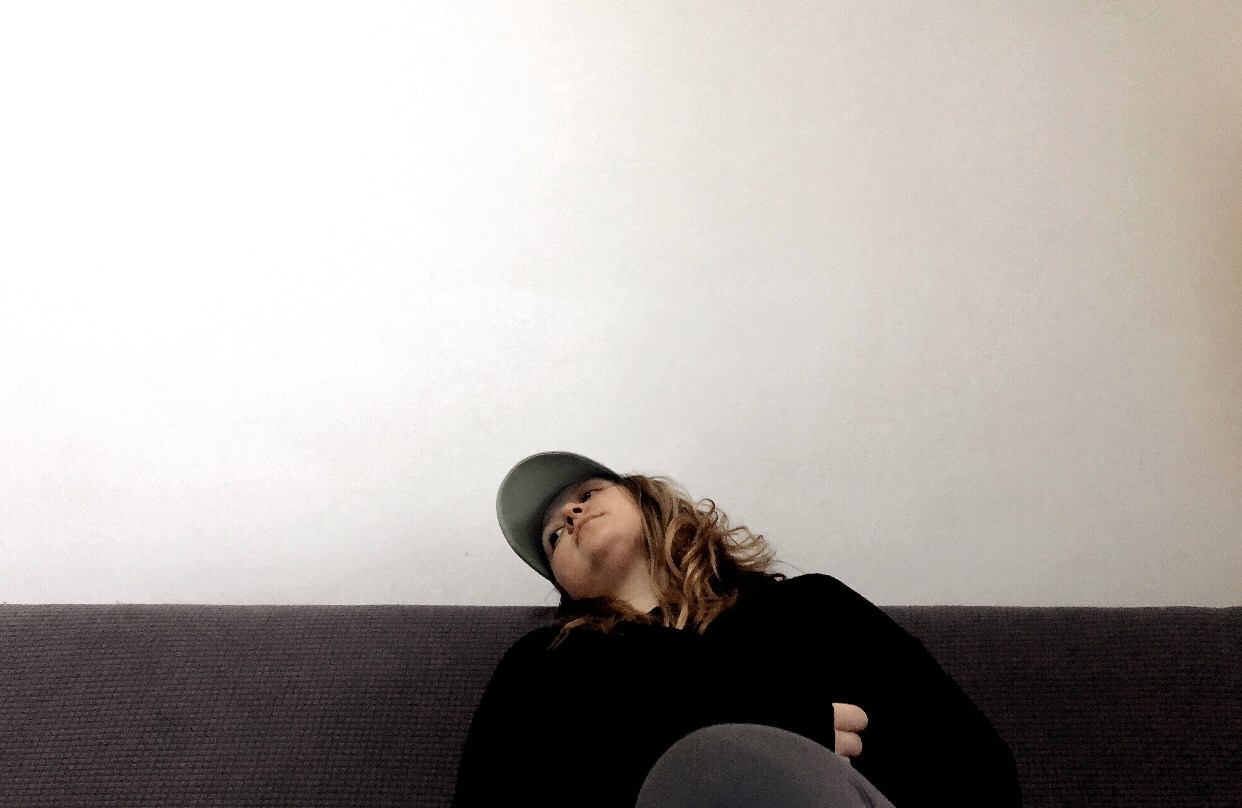*Editor’s Note: Elephant Journal articles represent the personal views of the authors, and can not possibly reflect Elephant Journal as a whole. Disagree with an Op-Ed or opinion? We’re happy to share your experience here.
~
I was in Xi’an, Shaanxi, China teaching kids English when COVID-19 started its demolishing effect on the world.
Although Xi’an held nowhere near the same amount of cases that Wuhan did, we went on phase one lockdown within a week of the government recognizing the true severity.
For all of you about to interrupt and make your case about how late China responded to the virus, stop. Wuhan’s leader was asked to step down after failing to take hold of the outbreak almost immediately, and that action made the news. I am also acutely aware that their case numbers are likely far less than recorded. Having lived there, I’m aware of the measures people in China take to save face. But that’s all a different argument.
When I talk to my family and friends back in China, they tell me everything’s better. They are recovering. They haven’t had new cases. They are able to carry out their days without fear of getting sick again. They’re going to movies, traveling around the country, seeing their family, hugging their friends, going to work, and getting their favorite food delivered to their doorstep.
They’re doing their normal things.
The United States is still doing all of those same things. The difference is, people here are still getting sick.
These days, I’m seeing people make snide comments on isolation: how they won’t do it or how it’s pointless. How they’ll just go crazy if they isolate. Then, I watched POTUS take an incredibly unnecessary car ride to wave at his cult following just days after testing positive for COVID-19.
I can’t help but think how f*cking insane this is.
Then, I remember China is community-oriented and the U.S. is not.
Isolation and virus prevention is a joke to people in the U.S. But that’s not new information. I wish people would’ve seen just a slice of what it was like during the lockdown in China; maybe then they would understand, maybe then they would know what true isolation and virus prevention looks like. Coming home from China shortly after cases in China decreased was a big eye-opener on just how different our countries are in handling pandemics.
Look, I’m not here to argue with people about whether or not China ruined the world because they didn’t respond to the virus quickly enough. I’m not here to tell you China is better than the U.S. for how they handled it either. I’m here to tell you about what I experienced. I came here to share my perspective in mountainous hopes that many will stop throwing a temper tantrum about isolating during a pandemic that has claimed over 220,000 American lives.
I was confined to my apartment—alone—for 45 days.
I lived by myself 8,000 miles away from my home. Having lived in China from 2014 to 2016 when I was in the Peace Corps, I had a host family and friends to rely on, but I was hundreds of miles away from them too.
Of the few friends I worked with in Xi’an, whom I still didn’t know well, they did their part to stay inside to prevent the spread. I saw them once or twice before a phase one lockdown went into effect. Some of these friends lived within the same plaza as me and when they shut everything down, we still never saw each other.
We couldn’t go to each other’s apartments at our leisure or when we needed support.
We could only leave and enter our own buildings for the purpose of getting groceries.
Some of my colleagues ended up leaving the country during the Lunar New Year before phase one lockdown took effect. My friend from Scotland contacted me several times a week to check on me, admitting out loud how grateful she was to have her boyfriend confined with her.
Each morning, I looked down from the 25th floor of my apartment to see deserted streets where millions of people would roam. Instead of hundreds of cars passing by each day, there were maybe dozens. There was so little human activity outside, the skies turned from a depressing, hazy grey to a bright, clear blue within a matter of weeks. It was so quiet that I started to miss the incessant blaring car horns and the screaming whips from the men spinning tops in the square below me.
Some nights, I would watch the bright skies fade to darkness and listen to the increasing silence from my bedroom window.
Any sun I saw was from the bedroom window; I dreamt of walking barefoot in backyards, laying in the grass, and going for long walks. During those 45 days, I vowed never to take life or the outdoors for granted ever again.
On days when I could leave my apartment, I would walk past buildings darkened and without a trace of human life. No business was open. No street food vendors. No bubble tea. No massages. No shopping. No outdoor karaoke. No movie theaters. No food delivery. No motorcycles or bicycles. No cars going in and out of parking garages. No human contact. The most bustling place was the grocery store, for obvious reasons.
The only person I had any in-person interaction with was the security guard outside my building who would tell me to have a good day and be safe.
In those 45 days, I masked up and left my apartment seven times to get groceries. We were only allowed to leave every two days. Each time I returned to my apartment, I had to present my blue punch card to track the days of the month I had left. I had to scan my QR code and get my temperature checked each time I went into a building—their form of contact tracing.
I was alone and without my close relationships for so long that the effects of isolation were beyond excruciating and my mental health suffered greatly.
I would try and muster any motivation to exercise, knowing it would keep my mood up when all I wanted to do was fall apart, but I just couldn’t some days. I was forced to face confusing and heavy emotions no other experience in my life had ever afforded me.
The only thing giving me the motivation to get up and do anything was my obligation to teach my students online each day. Unlike many others who lost their jobs in China, I was able to work, and that was something to be grateful for.
Some days, I would erupt into tears for no reason or stay in bed much longer than I should’ve. I had to learn to sit with the depression that was slowly creeping in and be okay with it. I would try to stay strong for my parents while FaceTiming with them, but my parents knew better. They knew I was struggling to hold it together—that I was beyond homesick and lonely.
“You don’t have to pretend to be strong with us,” my dad said over FaceTime. The tears had never come faster.
I missed home.
I missed my friends.
I missed hugging my kids at the school.
I missed being outside and enjoying my solo adventures.
I missed genuine human interaction. I missed small talk in Chinese with curious strangers.
I missed the way everything was before.
Each day, I didn’t know when it would end; I didn’t know if we would see a spike in cases where I lived. I didn’t know if COVID-19 would infect my neighbor and get our building quarantined for two weeks. I didn’t know when I would see my friends again. I didn’t know when or if I would be able to go home to be near my family.
It was not easy; it was definitely not fun. Nobody enjoyed it.
Even people stuck inside with their families and significant others struggled. Child suicide was on the rise because parents and children in China didn’t know how to communicate with each other. They threw themselves from high-rise buildings because of the stress and frustration they were enduring.
It was ineffably difficult for everyone.
But in my opinion, isolation and mask-wearing saved their country from even worse devastation.
Most Americans don’t know confinement; they don’t know true self-isolation. They don’t know what it feels like to literally not be able to go anywhere because everything is shut down and authorities won’t let them. They don’t know what it’s like for buses, trains, and planes to be completely shut down so they can’t get home.
Americans spent one, maybe two weeks inside and decided they’d had enough, and then they resumed their daily activities as if business was good. Americans have decided they’re over it, and there are plenty of government officials on board with that mentality. Thus, nothing was strictly enforced—and we are still battling something that could have been over months ago.
We’re in an environment where we have barely any restrictions and most Americans are still complaining that it’s imposing greatly on their lives.
Please stop complaining.
It’s not imposing as much as you think. Many Americans have more flexibility than anyone in China ever did when it came to living their lives.
No one wants to wear a mask. No one likes being stuck in their homes. No one likes being told they can’t travel or go do something. No one likes not having a job.
No one likes losing someone they love to death either.
This is beyond you, or me, and the stress we’re feeling. Everyone is feeling stress, everyone is facing difficulties, everyone is hurting from this in some way. People have lost their jobs; they’ve lost their homes; been forced to quit their jobs to stay home with their kids; been forced to stay home with their immunocompromised kids or family members to keep them safe—all of this because many have decided they were above the simple tasks of isolation and wearing a mask.
We should be getting through this together and we’re not.
Right now, the U.S. is the leader in deaths by COVID-19 and showing no signs of stopping. The White House is infected while our President has told us for months that this will magically go away. We still haven’t received a second stimulus check to cover our bills. People have waited months to receive unemployment. 60 percent of businesses have been permanently closed.
The point is: Americans haven’t isolated—not really—not in an effort to save others.
People have lost someone they love because of it too.
We are not doing well, but we can still do better.

 Share on bsky
Share on bsky







Read 12 comments and reply